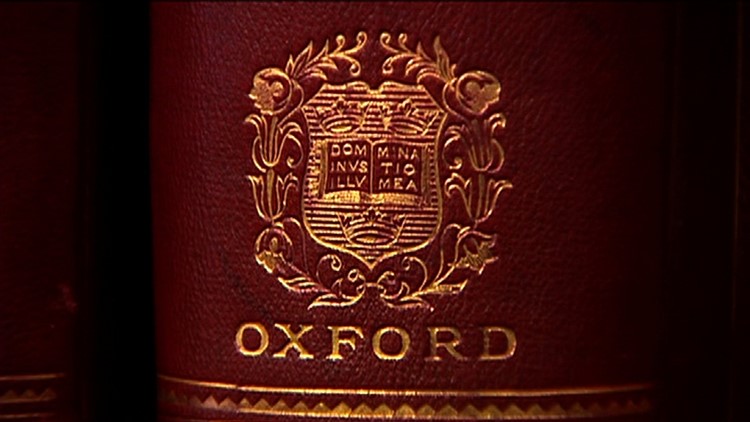The Oxford English Dictionary has named “post-truth” the international word of the year after its usage spiked around the Brexit vote and the US election.
“It’s not surprising that our choice reflects a year dominated by highly-charged political and social discourse,” Oxford Dictionaries President Casper Grathwohl said in a statement.
“Fuelled by the rise of social media as a news source and a growing distrust of facts offered up by the establishment, post-truth as a concept has been finding its linguistic footing for some time.”
Post-truth is defined as an adjective “relating to or denoting circumstances in which objective facts are less influential in shaping public opinion than appeals to emotion and personal belief,” according to the dictionary.
Every year, Oxford Dictionaries’ lexicographers decide on a word that points to the year’s biggest trends or changes in the English language.
The concept of post-truth has been around for the past decade, the publisher said, but it went mainstream this year during emotional political campaigns that ended with Britain voting to exit the European Union, and the US electing Donald Trump to be President.
Use of the word has increased by 2000% since 2015.
“We first saw the frequency really spike this year in June with buzz over the Brexit vote and again in July when Donald Trump secured the Republican presidential nomination,” Grathwohl said. “Given that usage of the term hasn’t shown any signs of slowing down, I wouldn’t be surprised if post-truth becomes one of the defining words of our time.”
This year’s choice is a somber departure from last year’s pick: the “face with tears of joy” emoji.
Here are the rest of the Oxford Dictionaries’ shortlist choices and definitions:
Other nominees point to a politically-charged year
alt-right: an ideological grouping associated with extreme conservative or reactionary viewpoints, characterized by a rejection of mainstream politics and by the use of online media to disseminate deliberately controversial content.
glass cliff: used with reference to a situation in which a woman or member of a minority group ascends to a leadership position in challenging circumstances where the risk of failure is high.
woke: an adjective referring to becoming alert to injustice in society, especially racism.
The rest of the shortlist
adulting: the practice of behaving in a way characteristic of a responsible adult, especially the accomplishment of mundane but necessary tasks.
chatbot: a computer program designed to simulate conversation with human users, especially over the Internet.
coulrophobia: an extreme or irrational fear of clowns.
hygge: a quality of cosiness and comfortable conviviality that engenders a feeling of contentment or well-being — regarded as a defining characteristic of Danish culture.
latinx: a person of Latin American origin or descent, used as a gender-neutral or non-binary alternative to Latino or Latina.



